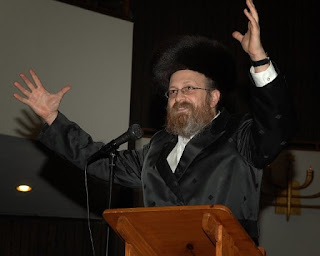The 12th of Cheshvon, marks the 3rd yartzeit of my father-in-law, Dan HaLevi ben Aaron a”h, Dan Huth.
My father-in-law a”h had a very unsual knack for telling over very pithy sayings and coming up with on-target analogies that seemed to make things crystal clear. My wife happened to have inherited that trait, too. One of my favorite sayings of his (I’m not sure of the origin of this saying, sorry) is:
If you are throwing roses to someone and it hits them like bricks, then you are throwing bricks.
Often it’s easy something to someone and have it taken the wrong way. Usually we’re not aware of it, and it’s an honest mistake. However, even if it wasn’t your intention, your words can end up hurting someone else. This is called onaas devarim. Most people are aware of when they say something hurtful, it s a conscious decision. But, many times we think we are giving a compliment or offering advice and what we end up doing is throwing bricks. I’ve seen this happen too often (and mostly I’m the one throwing bricks).
Over Tishrei I decided that we (my family, that is) needs to work on being more sensitive to onaas devarim, so starting this Shabbos Kodesh I’m attempting to go through sections of R Zelig Pliskin’s book on this topic, THE POWER OF WORDS, at each Shabbos meal. Hopefully it will make us more sensitive to the importance of what we say and, more importantly, how we say things.
Written as an aliyah for the neshama of Dan HaLevi ben Aaron









